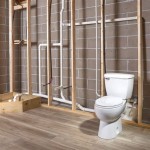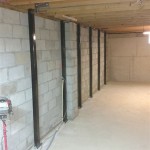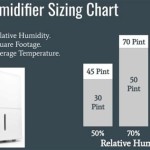What Is the Best Humidity for My Basement?
Basements, often considered the "underbelly" of a home, can be prone to moisture issues, leading to a variety of problems. Maintaining the right humidity level is critical for a healthy basement, preventing mold growth, wood rot, and other issues. The ideal humidity for a basement is between 30% and 50%. This range helps create a comfortable and safe environment while minimizing the risk of moisture-related problems.
The Importance of Maintaining Optimal Basement Humidity
Excessively high humidity in a basement can create a breeding ground for mold and mildew, leading to health problems such as respiratory issues, allergies, and even asthma. Additionally, high humidity can cause wood to warp, rot, and deteriorate, damaging structural elements and reducing the lifespan of building materials. Furthermore, high humidity can attract insects and pests, creating an unpleasant and potentially dangerous environment.
Conversely, low humidity in a basement can lead to dry air, causing discomfort and exacerbating existing respiratory conditions. Additionally, dry air can lead to static electricity, damaging electronic equipment and causing unpleasant shocks. While less common than high humidity, extremely low humidity can also contribute to wood shrinkage and cracking, affecting the structural integrity of the basement.
Factors Influencing Basement Humidity
Several factors contribute to the humidity levels in a basement:
- Location and Climate: Basements in humid climates are naturally more susceptible to high humidity levels.
- Basement Structure and Design: The design and construction materials of a basement play a significant role. Poorly sealed windows, cracks in walls, and lack of insulation can contribute to moisture problems.
- Water Intrusion: Leaky pipes, cracked foundations, and improper drainage can all lead to water infiltration and increased humidity.
- Indoor Activities: Activities such as laundry drying, showering, and cooking can release moisture into the air, impacting basement humidity levels.
Strategies for Managing Basement Humidity
Managing basement humidity is essential for maintaining a healthy and comfortable living space. The following strategies can be employed to control humidity levels effectively:
1. Ventilation
Proper ventilation is crucial for reducing moisture buildup in a basement. It allows for the exchange of fresh air, removing excess humidity and preventing moisture from accumulating. This can be achieved through:
- Basement Windows: Open windows, especially during dry seasons, to allow for natural air circulation.
- Exhaust Fans: Install exhaust fans in areas with high humidity generation, such as bathrooms, kitchens, and laundry rooms, to expel moisture-laden air.
- Whole-House Ventilators: Utilize whole-house ventilators to provide continuous air exchange and remove excess humidity.
2. Dehumidifiers
Dehumidifiers are effective appliances designed to remove moisture from the air. They work by drawing in humid air, condensing the moisture, and releasing drier air back into the environment. The appropriate size and capacity of the dehumidifier depends on the size of the basement and the level of humidity present.
3. Moisture Barriers
Moisture barriers help prevent water intrusion, which is a major contributor to high humidity. These barriers can be installed on walls, floors, and foundations to prevent moisture from penetrating the basement space. The type of barrier used may vary based on the specific needs of the basement.
4. Addressing Sources of Moisture
Identifying and addressing the sources of moisture is crucial for effectively managing humidity. This involves inspecting pipes for leaks, repairing cracks in the foundation, and ensuring proper drainage. By eliminating these sources of moisture, you can significantly reduce the humidity levels in your basement.
5. Maintaining a Clean and Dry Environment
Keep your basement clean and dry to discourage mold growth and reduce humidity levels. Ensure proper ventilation, clear clutter and debris, and regularly clean surfaces to minimize the chances of moisture accumulation and mold development.
Maintaining the ideal humidity level for your basement is essential for a healthy and comfortable living space. Employ the strategies outlined above to control moisture levels and create a safe environment for your family and belongings.

Dehumidifier Setting Chart What Should Be Set At

How To Achieve An Ideal Basement Humidity Of 30 50

What Is The Ideal Basement Humidity Level Epp Foundation Repair

How To Achieve An Ideal Basement Humidity Of 30 50

How To Achieve An Ideal Basement Humidity Of 30 50

Moisture In Basements Causes And Solutions Umn Extension

Hot In Here How To Maintain Ideal Indoor Humidity Summer

Best Humidity Level For Crawl Space Nia

How To Lower Your Basement S Humidity Level

What Should A Basement S Humidity Be







